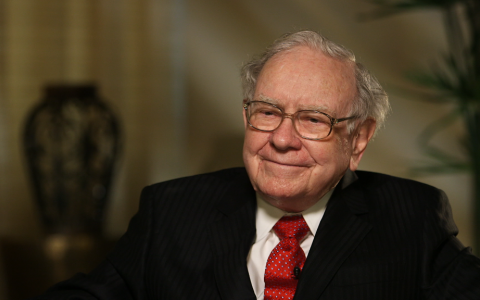
Berkshire Hathaway recently released its first-quarter results, and as expected, a wave of bearish investors quickly pointed out that Warren Buffett is sitting on a record cash reserve of $189 billion.
These commentators suggest that Buffett's reluctance to deploy this capital signals an impending market downturn, implying that he finds no value in today's high market valuations.
However, Chris Bloomstran, the fund manager at Semper Augustus, which oversees approximately $550 million in assets, including a significant position in Berkshire Hathaway, offers a different perspective.
In a recent interview, Bloomstran emphasized that Berkshire's cash position is more nuanced than it appears and doesn't indicate that Buffett is bearish on the market or that a crash is imminent.
"People tend to exaggerate the significance of Berkshire's cash pile, but it's not as alarming as it seems," Bloomstran explained.
Understanding Berkshire's Cash Reserve in Context Rather than focusing on the absolute amount of Berkshire's cash reserve, Bloomstran suggests that investors should consider the cash as a percentage of the company's total assets.
Currently, Berkshire's cash reserve stands at 17.5% of its total assets, a level consistent with its long-term average. Since 1997, Berkshire Hathaway has maintained an average cash reserve of 13% of its assets.
Another way to assess Berkshire's cash position is by comparing it to the company's market valuation, which reveals a similar trend. The current cash reserve, while substantial, is far from its peak of nearly 40% in 2004.
Berkshire's Obligation to Hold Cash It's important to recognize that Berkshire Hathaway cannot simply invest all of its cash reserves, even if it identifies a suitable opportunity.
"About half of that cash is genuinely deployable," Bloomstran noted.
This is because Berkshire's extensive insurance operations require the company to maintain a significant cash reserve to cover potential insurance payouts.
Buffett has stated that Berkshire will always keep a permanent cash reserve of around $30 billion to cover these potential liabilities. However, Bloomstran adopts a more conservative stance, suggesting that the reserve should be closer to $82 billion to account for a full year's worth of potential insurance losses.
"As a result, we're looking at about $82 billion as a more or less permanent cash reserve," Bloomstran explained in his annual letter to investors. This leaves approximately $110 billion available for Berkshire to invest.
Limited Investment Opportunities for Berkshire Hathaway Given Berkshire Hathaway's massive size, there are only a few companies that can significantly impact its performance.
Couple this with the fact that short-term Treasurys are yielding over 5%, and it's clear why Buffett and his team are taking their time to identify the right investment at the right price. This patient approach mirrors Berkshire's first investment in Apple during the first quarter of 2016.
Back then, the S&P 500 was near record highs, Apple was the largest company globally, and Berkshire's cash reserve was at a record level. Despite these factors, Buffett made what would become one of the best investments in Berkshire's history.
"Buffett is essentially limited to the 100 largest companies in the S&P 500, along with a few international businesses. His opportunity set is narrow, but he's content earning 5.3% in the meantime. This doesn't signal an imminent market crash. He's simply waiting for stable opportunities to deploy capital. His universe of potential investments is constrained," Bloomstran stated.
In conclusion, investors should not adopt a bearish stance on the stock market just because Berkshire Hathaway has accumulated a record amount of cash.
Buffett himself addressed this at the recent annual shareholder meeting when asked about Berkshire's cash reserve:
"We only swing at pitches we like," the legendary investor remarked.



